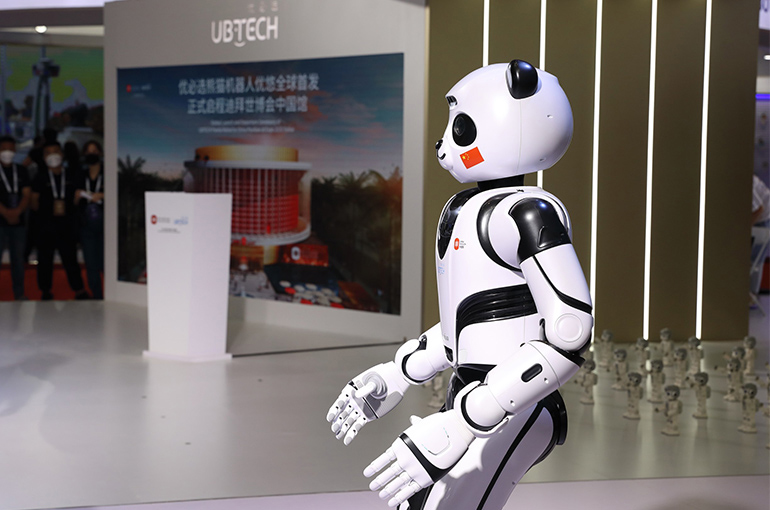 UBTech’s Shares Triple in Two Days as Chinese Robot Maker Joins HK Stock Connect Scheme
UBTech’s Shares Triple in Two Days as Chinese Robot Maker Joins HK Stock Connect Scheme(Yicai) March 7 -- UBTech Robotics Corp.’s stock price more than tripled in the last two days after the Chinese manufacturer of humanoid robotics was inducted into the Hong Kong stock connect program, allowing mainland investors to purchase its shares directly, and as the prospects for the industrial application of humanoid robots improve.
UBTech’s share price [HKG:9880] closed up 0.6 percent at HKD204 (USD26) today. Earlier in the day it surged 61 percent to hit a record-high of HKD328 (USD42), giving it a market capitalization of HKD110 billion (USD14.1 billion). Yesterday the shares surged 88 percent.
UBTech’s share price has been stable, staying around HKD100 apiece, since it floated on the Hong Kong bourse in December last year, raising HKD1 billion (USD128 million). That is until the Shenzhen-based company, which is the first Chinese humanoid robotics startup to list, was inducted into the Hong Kong stock connect program on March 4. After which its share price began to surge.
There are also encouraging signs that industrial humanoid robots might become more widely applied in industry. In late February, UBTech released a video clip that showed its flagship Walker humanoid robot, which can walk like a human and perform simple household tasks such as serving tea, watering flowers and wiping surfaces, working in a new energy vehicle factory.
It is a video of Walker S “being trained on site” in the assembly line of electric car startup Nio, an executive told Yicai. Humanoid robots are starting to be used in smart manufacturing and automobiles will probably become the first field where these robots are applied on a large scale, he added.
However, the high manufacturing costs of humanoid robots is still an issue of major concern. UBTech, which was set up in 2012, has yet to make a profit and it has only sold 10 of its Walker robots so far due to their high price of CNY6 million (USD845,400) per unit.
In the first half last year, UBTech amassed losses of CNY548 million (USD77.3 million) on revenue of CNY261 million. In the three years from 2020 to 2022 it racked up a deficit of CNY2.6 billion (USD366.3 million), according to its initial public offering prospectus.
Most of UBTech’s income comes from robots used in the educational and logistics sectors. In the fiscal year 2022, UBTech’s revenue from this segment accounted for 77.3 percent of total revenue but this fell to 58.4 percent in the first half last year, the prospectus said.
Editors: Tang Shihua, Kim Taylor